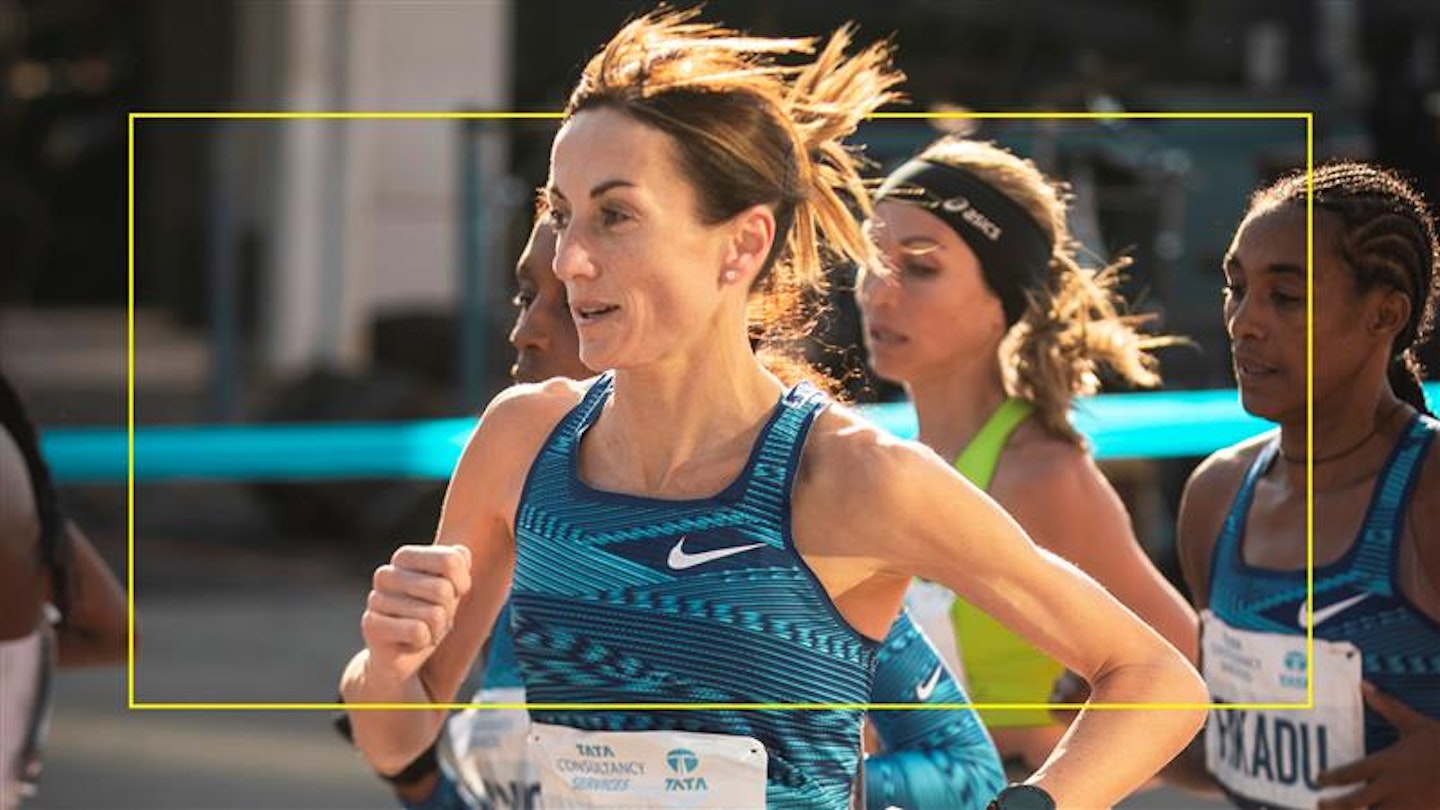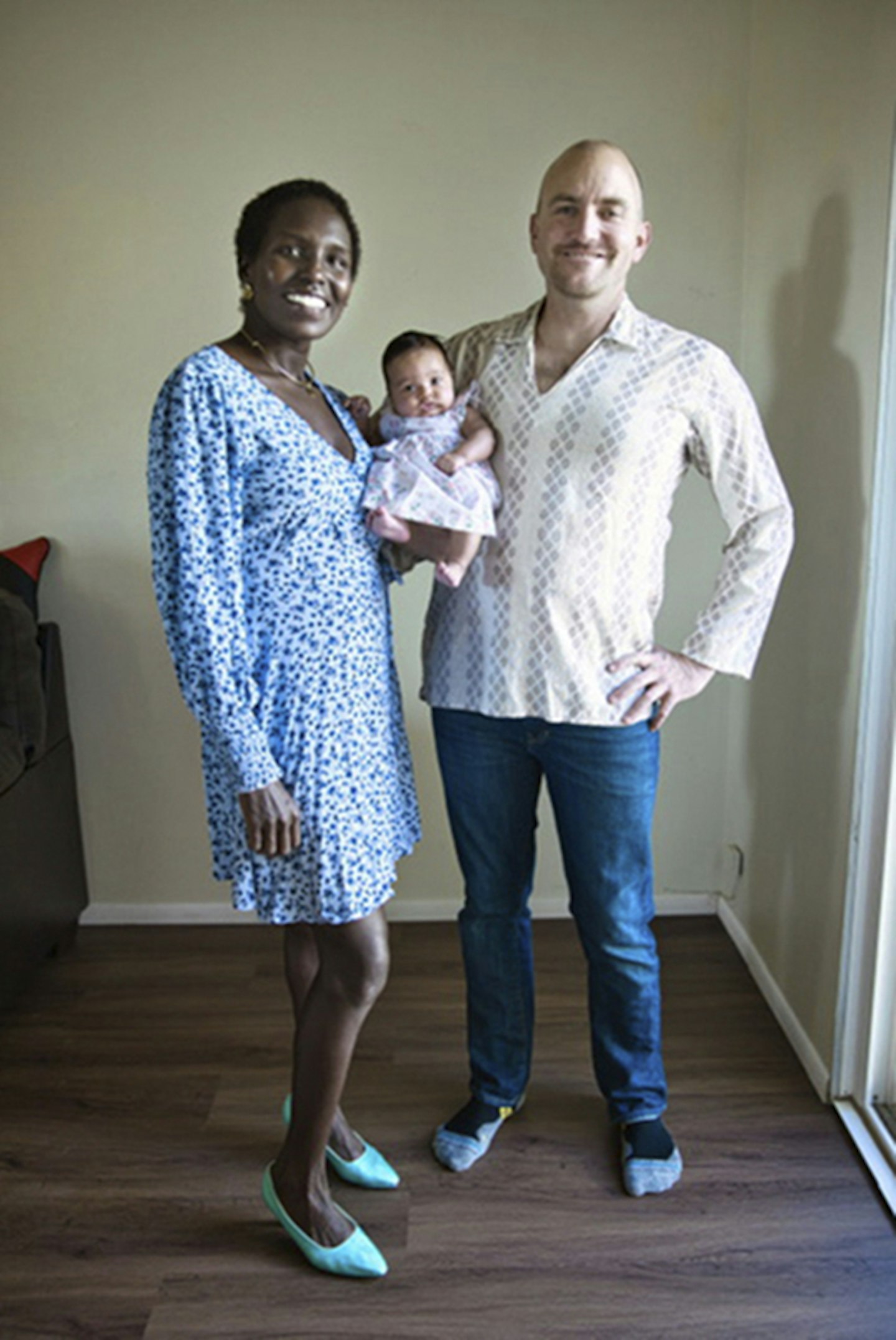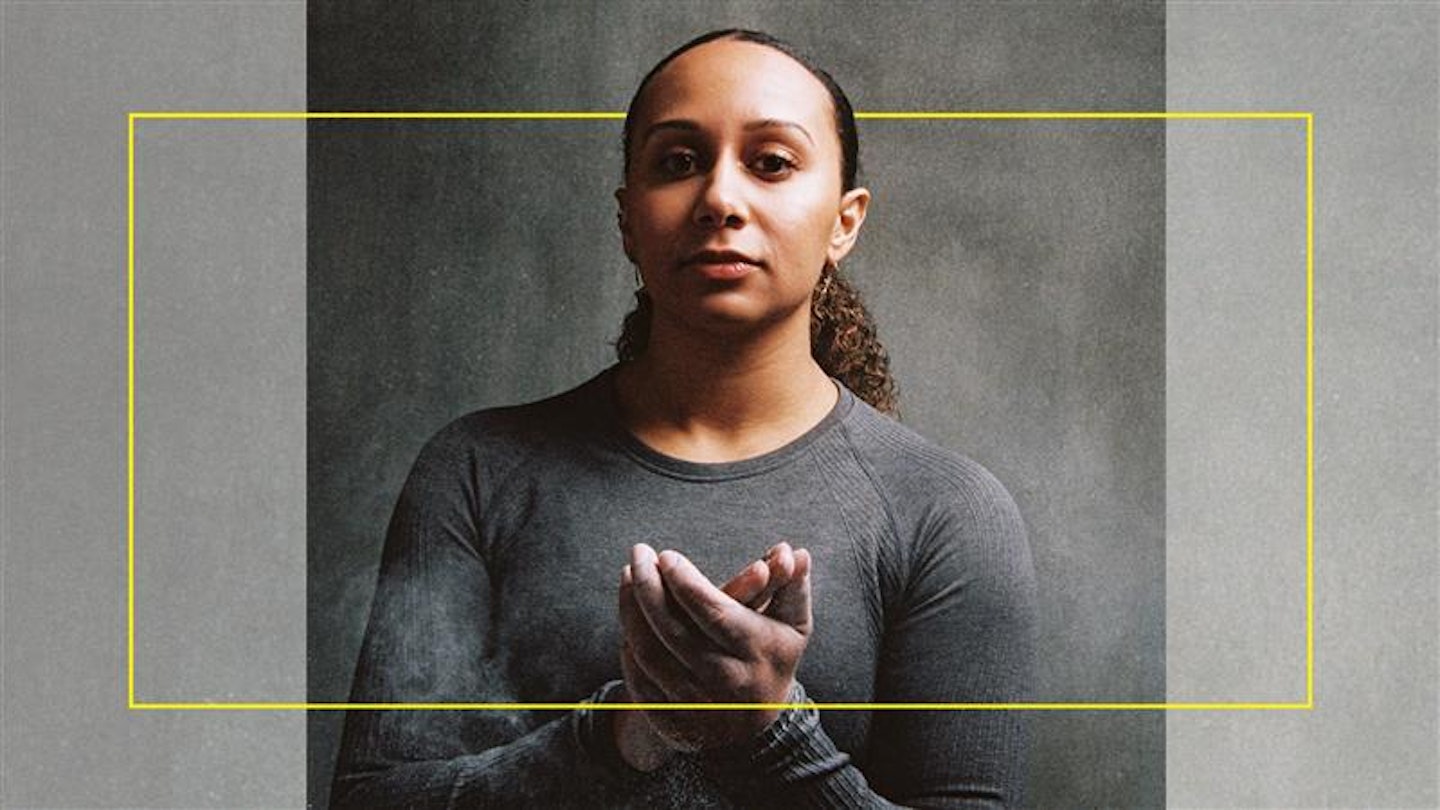Ramla Ali – Representing Somalia in boxing
Ramla ali – the first female professional boxer from Somalia; selected by the Duchess of Sussex to be on her Forces for Change Vogue cover – is often asked what it took to get to where she is today. ‘It’s not natural talent or support. It’s a ruthless refusal to quit,’ says the 31-year-old, who fled civil war in Somalia as a child, arrived in the UK as a refugee and then learned to box in secret in east London because her family disapproved.
‘The determination you need to keep going back when you can’t find a gym, coach or training partners, or don’t have the funding to enter competitions, is what will eventually set you apart from the rest,’ she says.
Ramla started boxing at the age of 12 to ‘lose weight, gain more self-confidence and feel empowered’, but keeping it from her family was exhausting. ‘The energy it took to hide my passion was as draining as the fights themselves. In boxing you need support. I hope other young women don’t feel the need to do this in future,’ she says.
‘I used to not understand why my family were so unsupportive of my career, but my mother explained that she took me from a place of violence and suffering to bring me to a country for safety, so her biggest fear was seeing me put myself back in that same position.’
Now, Ramla wants to see more women across the UK take up the sport of boxing and ‘not feel intimated by how male-dominated it is’.
As for her family, they’ve more than come round to the idea. ‘Now, my mum’s my biggest fan,’ Ramla adds. ‘She understands that what I’m trying to achieve in terms of inspiring my community, my country and my continent is bigger than me – and sometimes suffering and struggling is an essential part of that journey.’
Sky Brown – Representing Team GB in skateboarding
Think skateboarding is for boys? Think again. This gamechanger isn’t only pushing boundaries for girls, she’s doing it at age 12. Sky Brown is set to become the youngest British summer Olympian of all time after qualifying for Team GB’s skateboarding squad. When she found out she’d qualified she says,
‘I couldn’t believe it. I had to pinch myself. It was insane. I want to go to the Olympics to inspire girls.’
She’s had ‘a lot’ of comments on social media and in the skatepark suggesting she can’t skate because of her gender. ‘When I go to the skatepark everyone’s like, “Naah, she can’t do it because she’s a girl!” I kind of like it when they do. It makes you want to prove them wrong.’
Her dad, who’s also her coach, will be coming to Tokyo. ‘I’m still pretty young so just having my dad there is nice.’ He was a skater too, which is how she got into the sport as a toddler.
‘I’d always grab his board. It was my favourite toy. I’d love sitting on my butt, riding on it. I was playing with it since I was a baby, but I stood up on it when I was three,’ she says.
She was spotted on social media but, until a couple of years ago, she was just having fun, then started entering competitions. ‘We weren’t going to do the Olympics. My parents thought it’d be too much pressure, but then Team GB said, ‘There’s no pressure, just get out there and have fun, you can quit whenever you want to.’ My parents said no, but I begged them and begged them,’ she says.
Half-British and half-Japanese, living in California, Sky skates with friends before and after school – she’s surely a celebrity among her peers, but insists, ‘I’m just a regular kid.’ And with that, this boundary-breaking 12-year-old Olympian has to hurry off to school.
Sinead Diver – representing Australia in the marathon

She’s sparked headlines around the world for making her Olympic debut at 44, but Sinead Diver doesn’t like the focus being on her age. ‘I feel it detracts from what I’ve achieved,’ says the record-breaker, who came fifth in the New York marathon.
That said, she recognises her story sends an inspiring message that dreams can be realised at any age. Sinead, who is Irish but moved to Australia in 2002, will compete in the Olympics just 11 years after she took up running – on her first maternity leave, aged 33.
‘I started out running for fun. As a new mum, it was hard to meet people, so this was a good social outlet and running is the most time- efficient thing I could do.’
Then, someone on her team noticed how fast she was, and she started competing. She used her second maternity leave in 2013 to get into marathon running.
‘Normally, athletes start in their teens or twenties. And then, generally, when they’re winding down their career, they’ll have kids.
It’s very difficult to have a professional athletic career, an IT career and have kids,’ she says, admitting it’s been a challenge trying to juggle everything. Professional contracts in Australia are few and far between so she manages alongside working 30 hours a week as an IT software developer – training mornings and evenings – which is easier now her children (aged 11 and seven) are both at school.
‘In society, there’s a perception that when women hit their thirties or become a mum that they’re not really able to pursue any other goals at a high level, and I really disagree with that,’ she says. ‘I hope that I will inspire other women and show them that they don’t have to accept that limitation.’
Aliphine Tuliamuk – representing the US in the marathon

It’s been quite the year for Kenyan-born, US marathon champion Aliphine Tuliamuk, 32. She welcomed her first child, Zoe, in January after a 50-hour labour – ‘The pain is not comparable to a marathon,’ she says. Then, she returned to training eight weeks later, while breastfeeding. She’s also been busy calling for Tokyo organisers to allow breastfeeding athletes to bring their babies to the Games – a campaign she and other nursing athletes have just won.
‘I can’t even imagine being away from Zoe [now five months old] for half a day. My throat is lumpy,’ she says. ‘Motherhood has made me so vulnerable. I feel like my heart is hanging outside of my body. I hope that other women see me as someone who is starting a family and balancing everything that comes with it. I hope that my story is relatable and inspirational and that it touches women and girls,’ she says.
She’ll also be the first Black woman to represent the US in the marathon at the Olympics, alongside Sally Kipyego. She explains her life would be very different if she had never left her village in Kenya. ‘Back then, early marriages and FGM were pretty rampant. It still exists today but at a smaller scale. Running and leaving home opened doors for me.’ Now, she’s opening doors for others – helping to make the most prestigious sporting event more inclusive for anyone breastfeeding.
Zoe Smith – Representing Team GB in weightlifting

As if training for the Olympics isn’t stressful enough, Zoe Smith has had to do it with little financial backing. The 27-year-old has had to self-fund her journey after Government funding was pulled back for the sport in 2016.
‘At one point, when I was self-funding, I was working part-time in a coffee shop. At the same time, going up to Loughborough to see physios [and train],’ she says. She’s also still in college part-time, with course deadlines to meet alongside training.
Until recently, she trained in a makeshift gym in her garage, where there was ‘no light or heat’ and which she describes as ‘two planks of wood kind of stapled together and some rubber matting’. She’s had to crowdfund to enter competitions, and sponsors such as Sports Direct have helped support her – recently kitting out her gym. ‘It’s now like a proper gym. It’s so much easier to train in there.’
Zoe has also experienced setbacks when it’s come to motivation and her mental health, breaking down in May when the pressure of the Olympics became too much. ‘It was then I knew I needed a little bit of help, so I started seeing a sports psychiatrist. It’s really helping. He’s given me techniques to deal with my anxieties going into the gym, giving me strategies to cope when I’m feeling those pressures and self-doubt,’ she says. It’s helped to get her back on her feet. ‘I’m feeling a lot more confident in the run-up to Tokyo.’
Zoe is working with Sports Direct as part of its Equal Play initiative, the brand’s long-term commitment to driving equality in sport
.png?ar=16%3A9&fit=crop&crop=top&auto=format&w=1440&q=80)